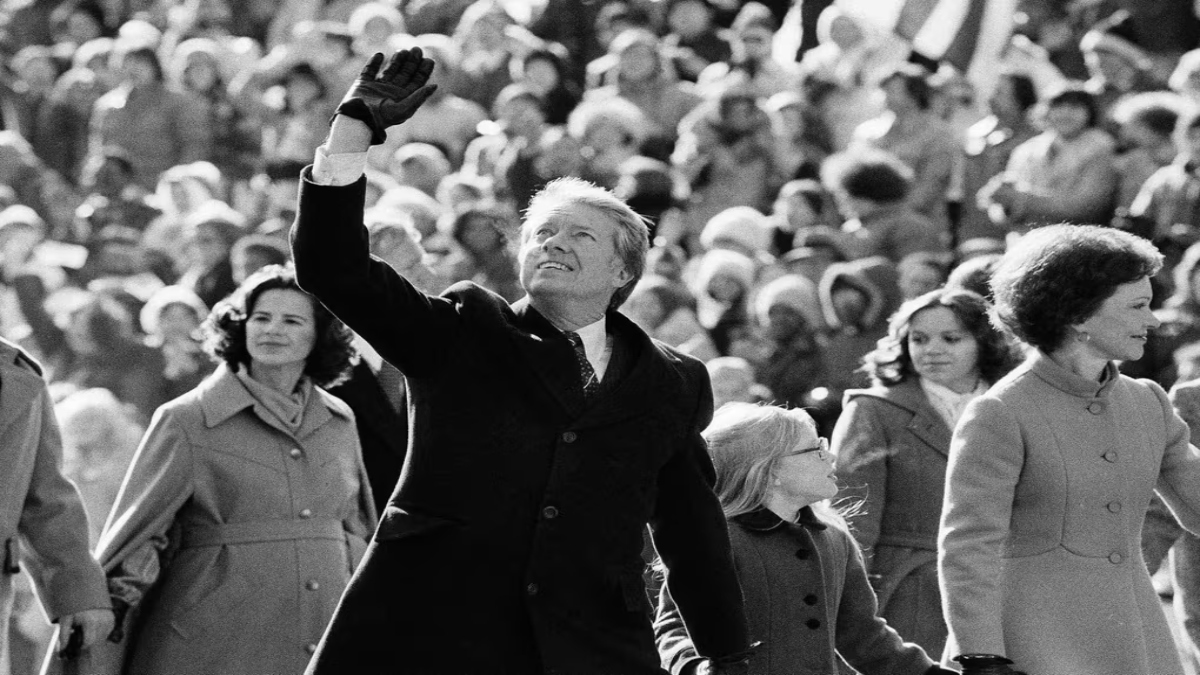Jimmy Carter, the 39th President of the United States, known for brokering a peace deal in the Middle East, passed away at the age of 100 on Sunday. “My father was a hero, not only to me but to everyone who believes in peace, human rights, and unselfish love,” said Chip Carter, announcing his father’s demise.
“My brothers, sister, and I shared him with the rest of the world through these common beliefs. The world is our family because of how he brought people together, and we thank you for honouring his memory by continuing to live these shared beliefs," he added. The Democratic politician from Georgia, Carter became the longest living President in American history.
While he only served one term in the White House after the thunderous takeover by Former US President Ronald Regan in 1980, Carter was known for ushering in monumental decisions during his four-year tenure. Carter later spent decades working towards promoting human rights all around the world. His efforts eventually won him the Nobel Peace Prize in 2002.
The man who took charge amid turbulence
In recent years, Carter underwent a series of hospital stays. On 18 February 2023, his family announced that the former President had chosen to spend his remaining time at home”, in hospice care and with loved ones. The decision had “the full support of his family and his medical team”, a family statement said.
Carter’s wife Rosalynn Carter passed away in November last year, two days after she entered hospice care. The former First Lady was 96 at that time and the pair was married since 1946. In June last year, Carter’s eldest grandchild, Jason Carter said that the former president was not awake every day but was “experiencing the world as best he can” as his days were ending.
It is pertinent to note that Carter assumed the Oval Office in 1977 and his one-term as president was marred by turbulence. He was at the helm of things following the infamous Watergate scandal and the Vietnam War embarrassment. Hopes for the Carter presidency were dashed, however, by economic and foreign policy crises, starting with high unemployment and double-digit inflation. The Iran hostage crisis and the Soviet invasion of Afghanistan were the final nail in the coffin.
Impact Shorts
More ShortsHowever, Carter made significant contributions during his brief time in the White House. In 1977, he completed a treaty that had eluded his predecessors to return control of the Panama Canal to its host country. In the next year, he brought together then-Israeli Prime Minister Menachem Begin and the Egyptian president, Anwar Sadat at Camp David for a deal that would produce peace that endures today.
Carter’s stint at the White House ended after Reagan, a former California governor, came to power by winning 44 states in the 1980 US Presidential Elections. 52 American hostages in Iran were released hours after Carter left office, prompting speculation that Republicans had made a deal with Iran.
The man with the most distinguished career after the presidency
Carter is known to have a most distinguished post-presidential career. He was awarded the prestigious Nobel Peace Prize in 2002 for “decades of untiring effort” for human rights and peacemaking. His humanitarian work was conducted under the Atlanta-based Carter Center, which he founded in the early 1980s, with Rosalynn.
After leaving the presidency, Carter travelled the world as a peace emissary, election observer and public health advocate. In 1994 he visited North Korea and in 2002 he embarked on a trip to Cuba, America’s biggest adversaries. The Carter Center is credited with helping to cure river blindness, trachoma and Guinea worm disease, which went from millions of cases in Africa and Asia in 1986 to a handful today.
In 2003, Carter emerged as one of the most prominent critics of the US invasion of Iraq and warrantless government surveillance and the prison at Guantánamo Bay. He also called for a two-state solution between Israel and Palestine in multiple speeches and books including Palestine: Peace Not Apartheid.
James Fallows, a former Carter speechwriter, wrote in 1979 that the president suffered from an inability to generate excitement but “would surely outshine most other leaders in the judgment of the Lord”. The Carter family announced that there would be public observances in Atlanta and Washington DC, followed by a private interment in Plains, Georgia.
With inputs from agencies
)